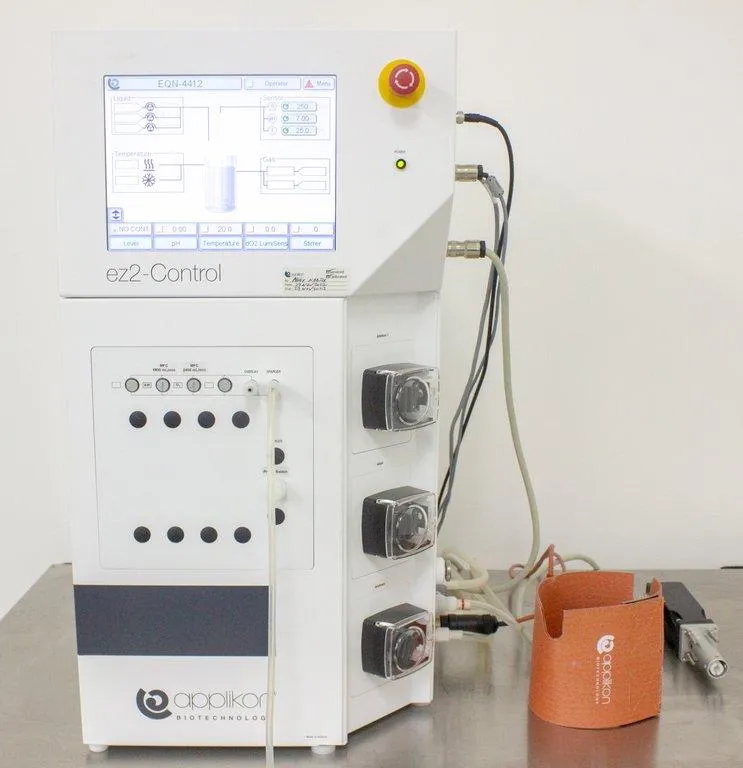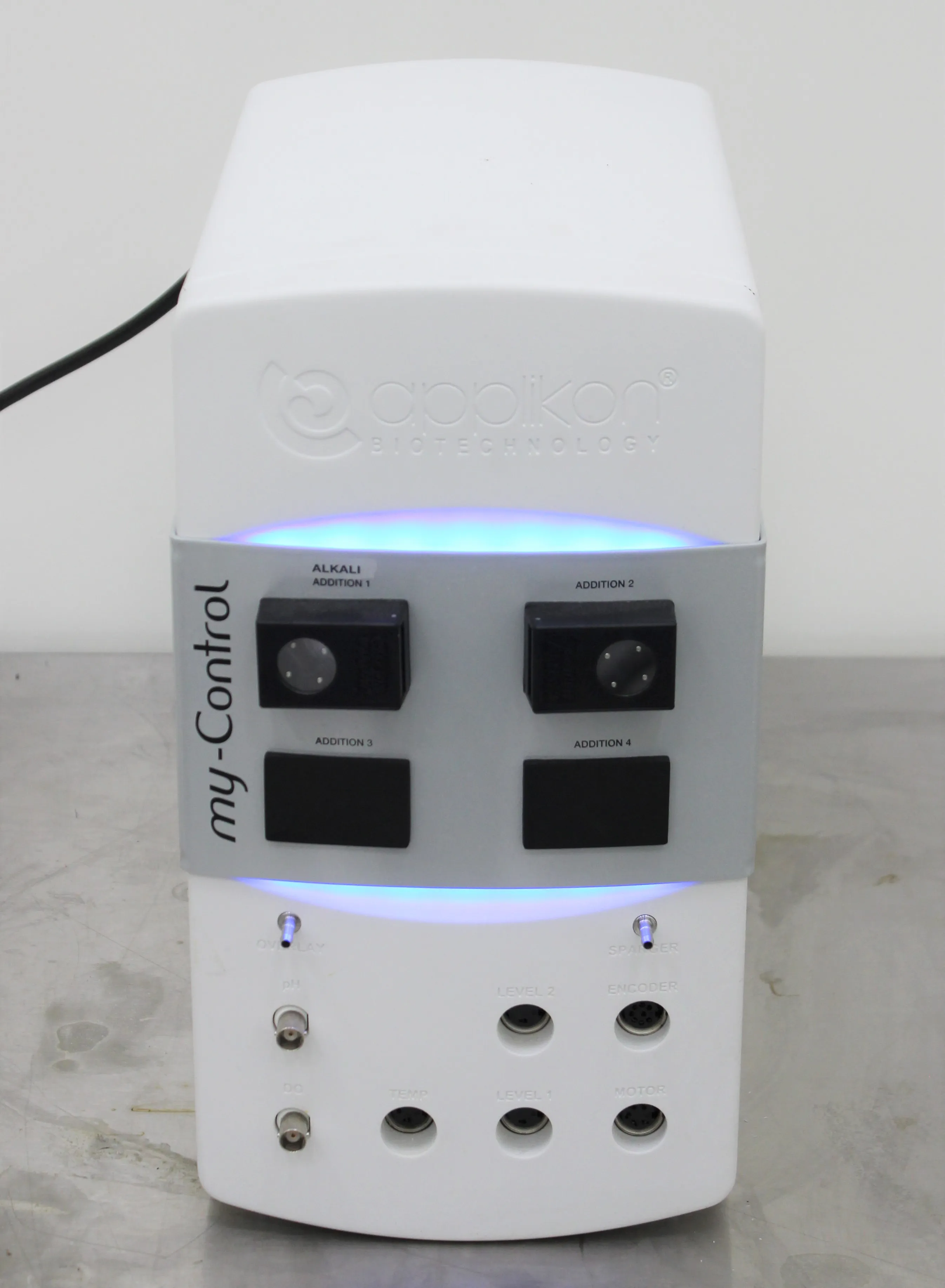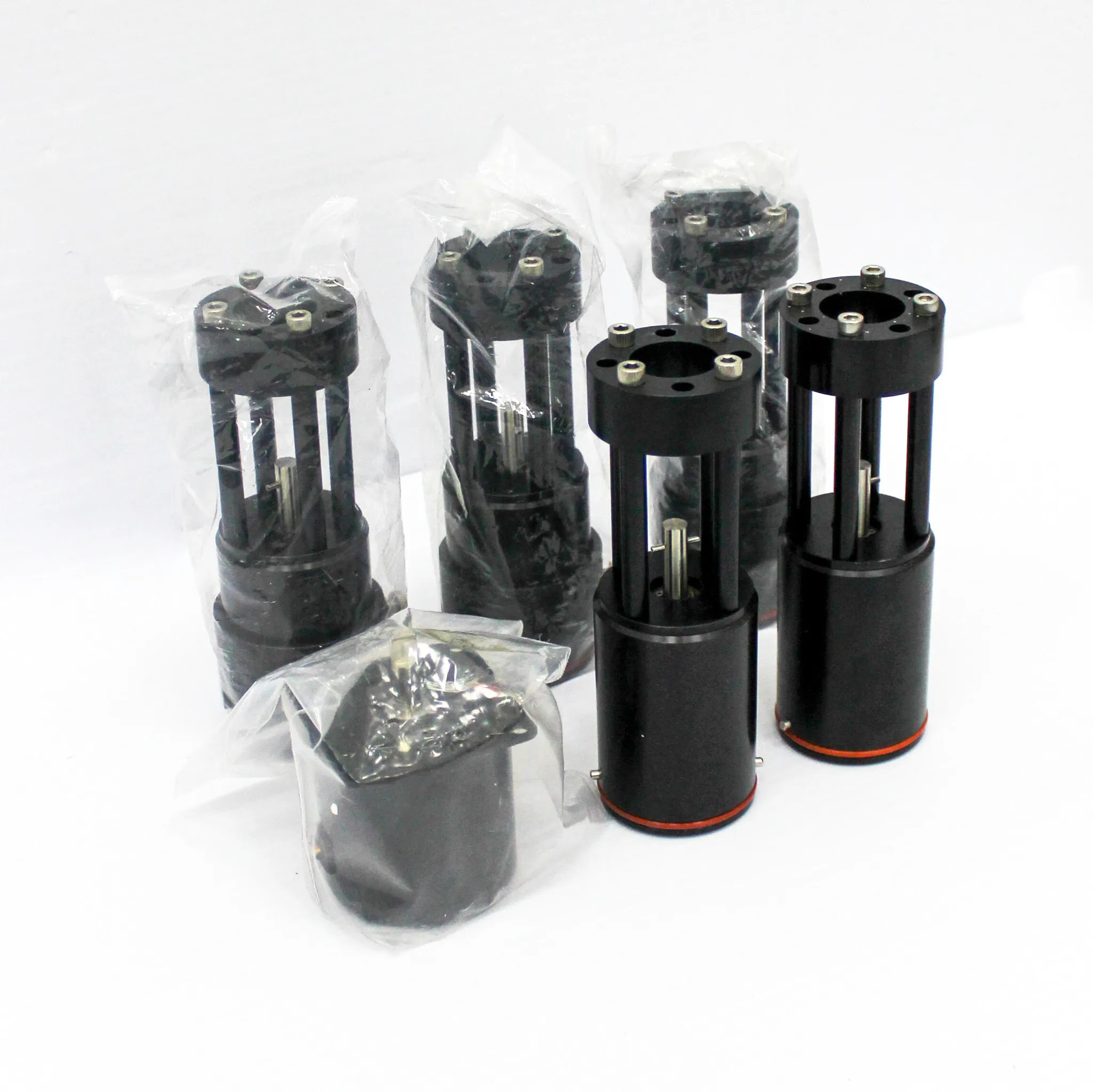Applikon Bioreactor introduces the micro-Matrix, a revolutionary system offering precise control over 24 independent bioreactors within the compact footprint of a microtiter plate. Each of the 24 bioreactors provides autonomous management akin to larger stirred-tank counterparts:
- pH regulation with measurement and dual-sided control
- Temperature management with measurement and dual-sided control, including plate-wide gradients
- Dissolved oxygen control with measurement and dual-sided regulation
- Customizable liquid additions, including feeding profiles
- Up to 4 distinct gas additions, each independently controlled
The micro-Matrix faithfully replicates the functionality of small-scale bioreactors. Its bioreactor square well cassette design, modeled after the widely adopted SBS-format microtiter plates, ensures optimal mixing, gas transfer, and seamless integration into laboratory automation workflows. The user-friendly PC-based interface mirrors the renowned my-Control interface, facilitating intuitive interaction with all 24 bioreactors.
Integrated LEDs provide instant process feedback, indicating bioreactor status (inactive/active/alarm) through color-coded signals, streamlining operator oversight. Each bioreactor boasts its own PID controller for pH, dissolved oxygen, and temperature, allowing for precise adjustments. pH control methods include gas addition, liquid addition, or a combination of both, while dissolved oxygen levels can be finely tuned via up to four gas additions per bioreactor.






